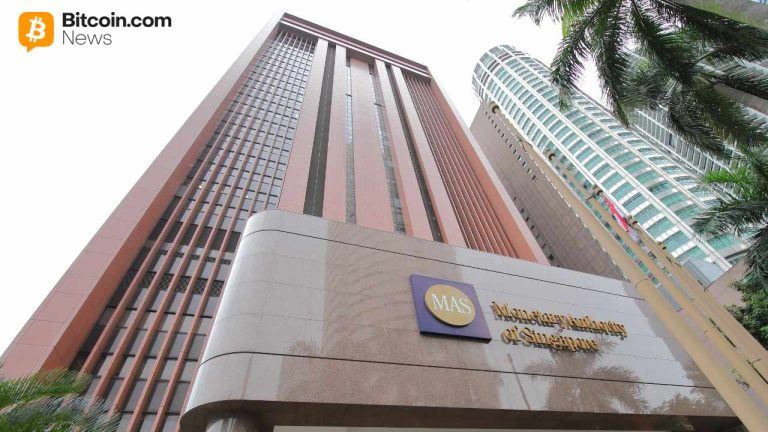Brian Armstrong promised me $100 in Bitcoin — so where is it?
1 min read
Coinbase CEO Brian Armstrong owes me $100. That’s because he might not know how to use the Lightning Network, the instant payment solution built on top of Bitcoin.
Armstrong, who’s been building in the Bitcoin (BTC) space since 2012, recently tweeted that he would pay people who provided the “best examples” of people using cryptocurrency in Africa. “If you’re using crypto in Africa, reply with a short video (<30 seconds) or photo of how you’re using it,” Armstrong wrote. “Best few examples get $100 in crypto.”
If you’re using crypto in Africa, reply with a short video (<30 seconds) or photo of how you’re using it. Best few examples get $100 in crypto. Use hashtag #CryptoAfrica
And if you haven’t already, try out self-custodial Coinbase Wallet – send feedback https://t.co/zWvaH1nerF
— Brian Armstrong (@brian_armstrong) April 7, 2023
This is the CEO of Coinbase, after all, so I shared a video of myself using Bitcoin in Africa, which was part of a 30-second segment of a recent Cointelegraph documentary covering Bitcoin in Senegal.
The tweet quickly became the most-liked and most-shared response to Armstrong’s query. (Crucially, the tweet referred to Bitcoin in Africa, not crypto in Africa, and it demonstrated the ease and speed of the Lightning Network.)
However, Armstrong appears to have ignored my submission, despite more than 600 likes and 100 retweets. The next most popular submission had just 50 likes. So, I reached out to some key opinion leaders, creators and influencers within the Bitcoin community to amplify the tweet. Wicked, an anonymous Bitcoin educator and data analyst, tagged Armstrong in a post, accusing him of “actively ignoring the #Bitcoin Lightning Network.”
My tweets auto-delete after some number of months, so there is no search history.
Lightning is great and something we’ll integrate.
— Brian Armstrong (@brian_armstrong) April 8, 2023
Wicked very kindly drew Brian’s attention to my tweet video about Bitcoin in Africa. The tweet, and Armstrong’s affirmation that “Lightning is great and something we’ll integrate,” led to news outlets around the world reporting on Coinbase’s next development. He then also tweeted that he had sent me the money.
Awesome! sent $100 to joe@coincorner.io
cheers
— Brian Armstrong (@brian_armstrong) April 8, 2023
Here’s where things get weird. Armstrong said he paid me the $100. He said he sent $100 to the Lightning address shown in my Twitter profile bio: Joe@Coincorner.io
Now, if you’ve never used the Lightning Network before, you’d be forgiven for confusing this address with an email address. But would the CEO of Coinbase make that mistake? Could the Bitcoin OG have failed to recognize that the request in my bio — which says “Send BTC to Joe@Coincorner.io,” surrounded by lightning bolt emojis — could be my Lightning address?
Side note: Running a Bitcoin node is mildly technical, and sending money on the Bitcoin blockchain for the first time is a little nerve-wracking, as the transaction takes roughly 10 minutes to confirm and we live in an instant world. But using the Lightning Network in 2023? It’s brain-dead easy. A walk in the park. Seriously.
“That’s a big call, Joe,” I hear you say.
Yep, it is. And I’ve got the receipts to prove it. It’s so easy to use the Lightning Network that I stand in the street in locations worldwide giving out Bitcoin to people on their brand-new Lightning wallets — and I film their reactions.
The most common remarks are “I didn’t know it’s so easy” and “Wow, it’s so fast.” The videos are on my YouTube channel. Here’s a video shot in France for the Cointelegraph YouTube channel where I give out Bitcoin:
So, please — let’s not pretend that Armstrong is overwhelmed by the complexity of sending money to my Lightning address. Moreover, funnily enough, Bitcoin advocates worldwide saw my tweet and took pleasure in sending me sats to show that my Lightning address is alive and well.
Back to the story. Danny Scott, CEO of CoinCorner — a Bitcoin and Lightning company — was quick to point out to Armstrong on Twitter that he might have made a mistake in confusing Bitcoin and email, as Coinbase provides a “send to email” function.
Related: Ethereum’s Shanghai fork is coming, but it doesn’t mean investors should dump ETH
Scott told Cointelegraph in an email, “Obviously, we know the address [that Joe shared] is a Lightning address, but clearly not everybody does.”
“So my guess is Brian knows very little about Lightning right now, in particular LNURL, Lightning addresses and other innovations being built out, which is perfectly fine, he’s distracted, it happens, now we just hope he helps himself and the industry by turning their attention to what really has substance and long term value, Bitcoin and Lightning.”
It’s true: Coinbase offers trading for more than 250 different cryptocurrencies — that’s a lot of tokens to keep one’s eye on. And as Scott adds, “I can appreciate how busy he will be — this industry doesn’t sleep, and running a Bitcoin company myself, I know that feeling even at a smaller scale.”
To give Brian and ultimately Coinbase the benefit of the doubt, I waited a few days before writing this article. I have tweeted repeatedly at Brian (no reply) and I also reached out to the Coinbase Press Team. They told me that they would get to the bottom of it, but “My guess is that Brian is likely batching the sends at certain times.” A day has passed since this message (more doubt-benefit-giving) and they’ve not sent an explanation.
Related: Coinbase wins $470K restitution in insider trading case
The press team email was particularly left-field as it referred to “batching.” Batching is consolidating multiple payments into a single transaction on the Bitcoin blockchain, not the layer-2 Lightning Network. Again, they’re not familiar with Lightning. This adds further insult to injury: Could it be that the Lightning Network simply isn’t on Coinbase’s radar?
It’s been three days since Armstrong said he would send the money, and there have been some simply wonderful memes from the Bitcoin and wider crypto community.
Armstrong has been active on Twitter, while his company is busy launching new projects and winning insider trading cases for the over 250-plus crypto projects Coinbase hosts.
Meanwhile, I’m still waiting for my $100. But I’m also increasingly alarmed that the billionaire, crypto OG and Coinbase CEO Armstrong struggled to spot a Lightning address.
Joe Hall joined Cointelegraph as a reporter in 2021. He holds an MA in French and Spanish from the University of Edinburgh and a BA in languages from Sceinces Po Lyon.
This article is for general information purposes and is not intended to be and should not be taken as legal or investment advice. The views, thoughts and opinions expressed here are the author’s alone and do not necessarily reflect or represent the views and opinions of Cointelegraph.




